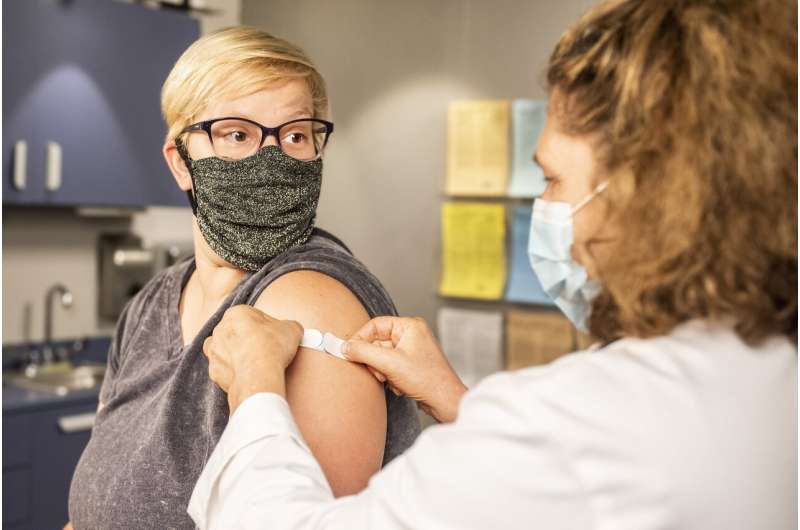Credit: Unsplash/CC0 Public Domain
Reports of some patients developing swollen lymph nodes after a COVID-19 vaccination has raised questions about whether screening mammograms should be rescheduled due to concerns that this finding could be mistaken for a potential breast cancer diagnosis.
"If you've had a COVID-19 vaccination, it's still important to come in for your screening mammogram," says Dr. Kristin Robinson, a radiologist at the Mayo Clinic Breast Clinic in Florida. "Let your mammogram technologist know that you've had the vaccine and which arm it was administered in. This information will be helpful in understanding the mammogram images."
The vaccines that prevent COVID-19 can cause swollen lymph nodes under the arm where the shot was given. Your lymph nodes are part of your body's germ-fighting immune system. The swelling in the lymph nodes is a sign that your body is responding to the vaccine and building up defenses against the virus.
"Breast cancer can present with lymph nodes that are swollen under one arm," says Dr. Robinson. "When we see that on a mammogram, we always want to evaluate that further and make sure that this is related to the vaccine and not to a new breast cancer."
Along with keeping your mammogram appointment, it's important to get the COVID-19 vaccine when available. Patients with cancer are at an increased risk for developing severe illness from COVID-19, and the vaccine is one tool to help prevent infection.
"Women should get their COVID-19 vaccine, even if they're scheduled to have their mammogram," says Dr. Robinson.
When it comes to preventive screening or medical treatment, Dr. Robinson urges patients not to delay care.
"It's important not to delay screening for breast cancer, and it's equally important not to delay receiving care for a new breast concern, such as detecting a new lump," says Dr. Robinson. "If you have a new breast lump or concern, your provider will recommend the appropriate breast imaging tests. It is important not to delay your health care regardless of what's happening in the world around us. Regular screening mammograms lead to early detection of breast cancer."
©2021 Mayo Clinic News Network
Distributed by Tribune Content Agency, LLC























